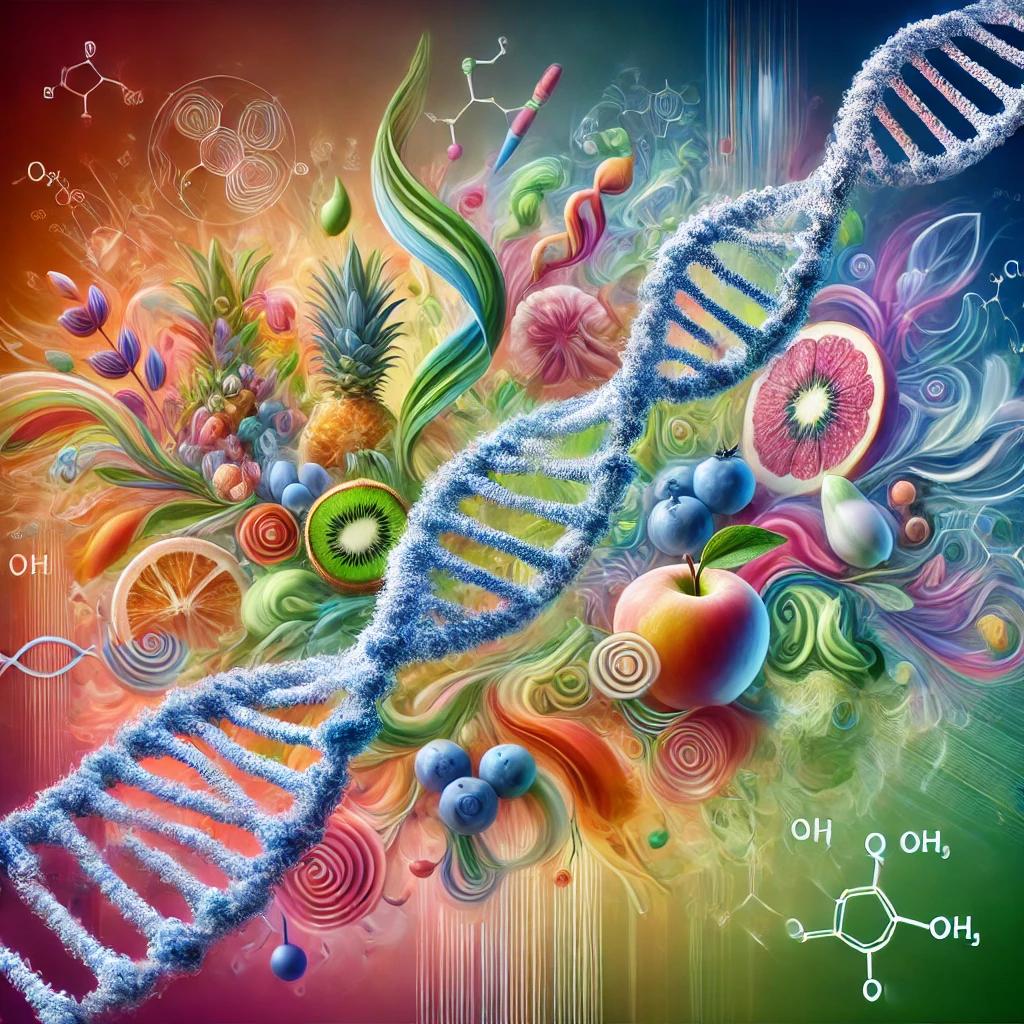The Genetic Influence on Taste Perception, Preferences, and Its Nutritional Implications.

By Julia Haimovich, Accredited Practicing Dietitian.
The Genetic Influence on Taste Perception, Preferences, and Its Nutritional Implications.
Taste is vital in our food choices, impacting our health and
nutrition. Genetics play a significant part in our perception of taste and food preferences. Understanding this connection can help us address dietary
habits, nutritional deficiencies, and overall well-being. This article discusses how
genetics influence taste perception, its link to food preferences, and the potential health
implications.
The Basics of Taste Perception.
Taste perception is a complex process that involves detecting chemical compounds in
food through taste receptors on our tongue. These receptors send signals to the brain,
interpreting them as different tastes: sweet, sour, salty, bitter, and umami. While
these basic tastes are universal, how individuals perceive them can vary significantly.
Genetic factors largely influence this variability.
Genetic Variability in Taste Sensitivity.
Research shows that genetic differences contribute to the variability in how we perceive
tastes. One of the most studied genetic variants is the TAS2R38 gene, which
influences bitter taste sensitivity. People with certain variants of this gene are more
sensitive to bitter tastes, which may make them avoid bitter foods like certain
vegetables. This sensitivity can lead to reduced consumption of healthy, bitter-tasting
Broccoli, kale, and Brussels sprouts are rich in nutrients and
antioxidants (1).
Similarly, genetic differences also influence the perception of sweet, salty, and umami
tastes. For example, variations in the TAS1R family of genes have been linked to
differences in sweet taste sensitivity. Those with higher sensitivity to sweet tastes may
prefer sugary foods, increasing their risk of obesity, type 2 diabetes, and other metabolic
disorders (2).
Impact on Food Preferences and Dietary Choices.
Our genetic makeup affects taste perception and shapes food preferences,
influencing dietary patterns. People more sensitive to bitter tastes tend
to avoid bitter vegetables, which can lead to lower intakes of certain vitamins and
minerals. On the other hand, individuals who have a genetic predisposition to prefer
sweet or fatty foods may consume diets high in sugar and fat, which can contribute to
health problems like obesity, heart disease, and diabetes (3).
Environmental factors also influence food preferences, but genetic
predisposition plays a significant role in shaping our initial reactions to different foods.
This genetic component can make it challenging for some people to adopt healthier
eating habits, especially if they are genetically inclined to prefer foods that are less
nutritious.
Nutritional Implications of Genetic Taste Variations.
The genetic differences in taste perception can have important nutritional implications.
For instance, individuals with high sensitivity to bitter tastes may struggle to meet their
nutritional needs if they avoid nutrient-dense bitter vegetables. This avoidance can result
in lower intakes of fibre, vitamins A, C, and K, and essential minerals such as calcium
and magnesium (4).
Personalised Nutrition: The Future of Dietary Interventions.
Personalised nutrition approaches are becoming more popular as we continue to uncover the genetic basis of taste perception. Personalised nutrition involves creating tailored
dietary recommendations based on an individual’s genetic makeup, taste preferences,
and health status. This approach can improve diet adherence, making it
easier for people to follow healthier eating patterns.
For example, knowing that a person has a genetic predisposition to avoid bitter foods
can help dietitians recommend alternative ways to incorporate necessary nutrients. They can suggest cooking methods, flavouring techniques, or even nutritional
supplements that enhance the palatability of healthy foods.
Genetic variations play a crucial role in shaping taste perception and food preferences.
These variations can significantly impact dietary choices and, ultimately, health
outcomes. By understanding the genetic basis of taste, nutritionists and health
professionals can develop more effective, personalised dietary interventions. This
approach caters to individual preferences, addresses nutritional deficiencies, and reduces the risk of chronic diseases.
As research in this area continues to grow, the potential for personalised nutrition
strategies based on genetic profiles offer a promising avenue for improving public
health and encouraging healthier eating habits.
References.
References.
- Diaszegi J, Llanaj E, Ádány R. Genetic background of taste perception, taste
preferences, and its nutritional implications: a systematic review. Front Genet.
2019;10:1272. doi:10.3389/fgene.2019.01272. - Mennella JA, Pepino MY, Reed DR. Genetic and environmental determinants of bitter
perception and sweet preferences. Pediatrics. 2005;115:e216-e222. - Tepper, B. J., Banni, S., Melis, M., Crnjar, R., & Tomassini Barbarossa, I. (2014).
Genetic sensitivity to the bitter taste of 6-n-propylthiouracil (PROP) and its association
with physiological mechanisms controlling body mass index (BMI). Nutrients, 6(9),
3363–3381. https://doi.org/10.3390/nu6093363. - Choi J. H. (2019). Variation in the TAS2R38Bitterness Receptor Gene Was Associated
with Food Consumption and Obesity Risk in Koreans. Nutrients, 11(9), 1973.
https://doi.org/10.3390/nu11091973 - Rankinen T, Bouchard C. Genetics of food intake and eating behavior phenotypes in
humans. Annu Rev Nutr. 2006;26:413-34. doi: 10.1146/annurev.nutr.26.061505.111218.
PMID: 16848714.